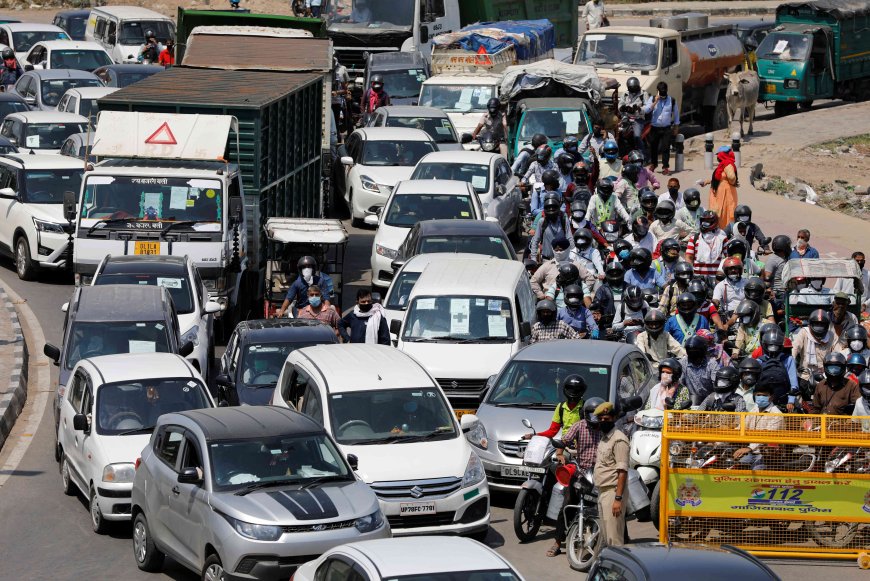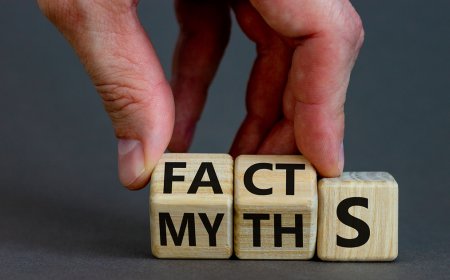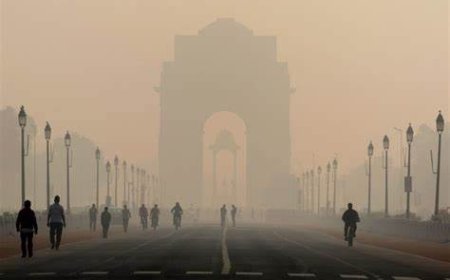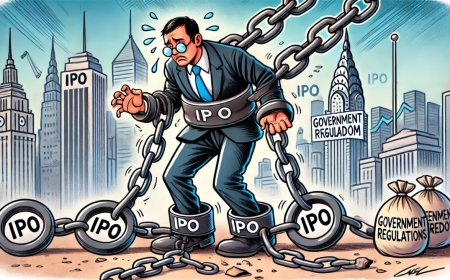If you've ever tried to navigate the chaotic roads of Delhi, Gurgaon, or Chandigarh, you've probably experienced what can only be described as a vehicular version of a Rubik's Cube. Traffic jams, potholes that feel like the craters on Mars, and the constant need to dodge pedestrians, cyclists, and random cows casually strolling through traffic — it’s as if the streets are a lawless free-for-all. But what if the answer to solving India's traffic problem wasn’t stricter regulations, more traffic cops, or larger roads? What if the solution lies in the opposite direction — fewer rules, more freedom, and, well, more cars?
Welcome to the libertarian solution to India’s traffic chaos: "Let’s just give people more freedom to do whatever they want!" The idea is simple: the less the government meddles, the better things get. So, let's unpack some quirky yet surprisingly relatable ideas from a libertarian perspective that could, in theory, fix the mess we're all stuck in.
1. Decentralizing Traffic Laws: One Man’s Red Light is Another Man’s Green Light
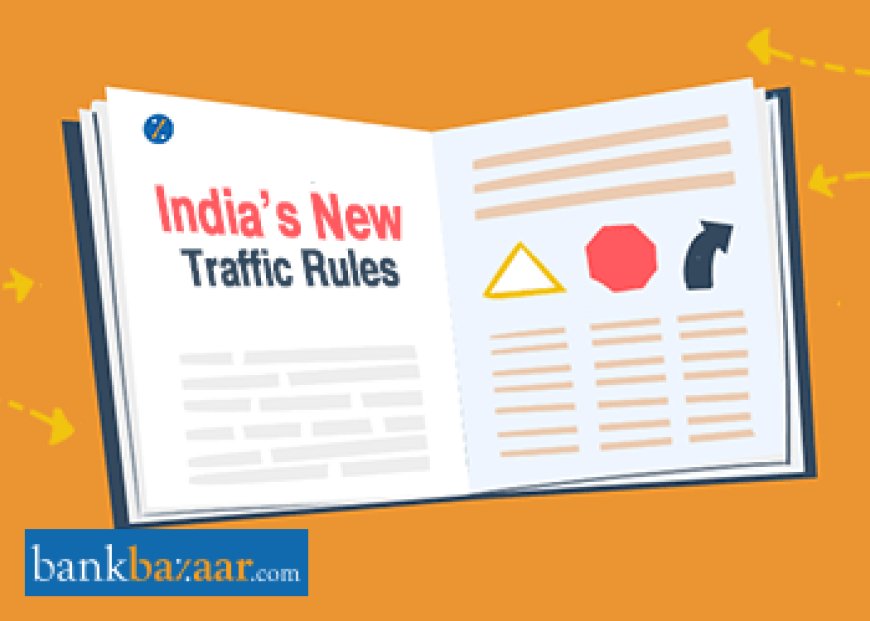
India’s traffic laws are as confusing as a Bollywood plot. In one city, you're supposed to honk like a honking champion at every signal, while in another, honking is punishable by an immediate "Delhi Belly"—the ticket is handed out faster than a hot samosa at a Delhi street corner. Now, imagine a world where each locality has its own set of traffic laws. No more endless debates about whether a left turn is allowed or if it’s okay to take a U-turn even when there’s a big ‘No U-Turn’ sign.
Here’s the kicker: imagine Delhi deciding that traffic signals are for the weak, while Chandigarh decides that honking is illegal—totally fine with the libertarian philosophy. Drivers would have the freedom to move about the city based on the laws that actually make sense in their specific area. You wouldn't need a manual on how to drive in every state; instead, you'd follow the laws that match your mood for the day. Who needs standardized traffic rules when you’ve got freedom and personal responsibility?
2. Reducing Restrictions on Car Ownership: The More, The Merrier

You’ve probably experienced the frustration of seeing only two cars occupy a five-lane highway in the middle of rush hour. Why is there even traffic, you ask? Simple. The number of cars on the road is restricted, and everyone is stuck on the same two-lane expressway in a never-ending loop of waiting for the one guy in front of you to inch forward. But what if there were fewer restrictions on car ownership? More cars means more lanes to fill, right?
In a libertarian utopia, people wouldn’t need to rely on unreliable public transport or overpriced ride-sharing services. Everyone could own their own car (or three), freeing up space for more traffic. The concept of ‘carpool lanes’ would become obsolete when you could just own a fleet of vehicles to create your own personal lane of freedom. Let's face it, in the world of endless red lights, who wouldn't want the power to create their own jam-free road?
3. Privatizing Toll Roads: Road Warriors for Profit
Now, here’s an idea that’s as fresh as a Chole Bhature in the morning: privatize the toll roads. Instead of the government taking forever to build a road (and then promptly forgetting about it), private companies would build and maintain highways based on user demand. Roads would no longer be one-size-fits-all bureaucratic nightmares. If you want a smooth ride, you pay for it. If you want to stick with the pothole-ridden road that takes you through every slum in your neighborhood, then knock yourself out.
The benefit of privatizing toll roads is twofold: companies have an incentive to ensure roads are in top shape, because guess what? They’re getting paid by YOU. Moreover, drivers can make informed decisions—should I pay a little extra to zoom through a smooth expressway, or should I take my chances with the government-maintained "adventure route"?
4. More Cars, Less Rules: Why Not?
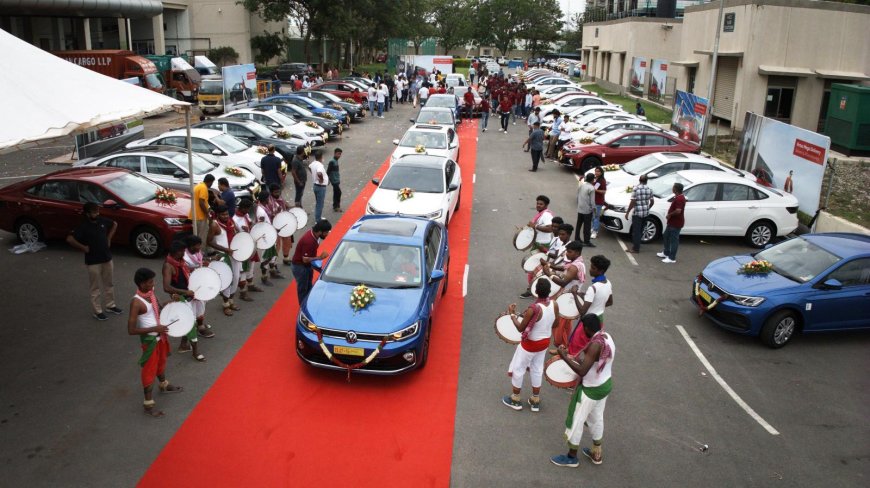
Libertarians would say, "Let people choose. Give them the freedom to drive, park, and even ignore speed limits if they wish!" Imagine a world where people can make their own choices based on their driving skills, their car, and their mood that day. Whether you're zipping through a city on a sleek new electric scooter or using your beloved Maruti 800 to weave through traffic, it’s all about choice.
The government wouldn’t control when you drive, where you drive, or how you drive. You get to decide the rules of the road — like creating your own lane in the middle of a jam or putting your foot down for a little roadside dance party when the light turns red. Why let anyone tell you when and where you can park? Your car is your kingdom; why limit it?
5. The Real Question: Is Government Really Helping?

Let’s take a step back and think about the current traffic situation. How many times have we all sat in traffic wondering if the traffic cops are really making a difference or if they’re just adding to the chaos? Who hasn’t seen the occasional cop laughing while you're stuck behind a jam, contemplating the existential question of "Why did I even get into this mess?"
What if, instead of a government-driven infrastructure model, we just let the market do its thing? Instead of limiting the number of cars on the road, what if we had a free-market traffic system where people could choose their level of involvement? Want less traffic? Buy a vehicle that can fly (hello, drones and self-driving cars)! Want more parking spaces? Create your own.
Conclusion: Could Libertarianism Really Fix Traffic?
Sure, it's easy to dismiss the libertarian solutions as far-fetched or impractical, but think about it: the current system is already a joke. We’re all stuck in an eternal battle with bureaucratic red tape that somehow gets more tangled the more we try to untangle it. So why not embrace a little chaos? Maybe, just maybe, giving people the freedom to choose would lead to more creativity, fewer restrictions, and, hey, maybe a smoother ride in the end.
At the very least, we'd have the freedom to roll down the window, honk loudly, and shout, "I’m free!" while stuck in yet another never-ending traffic jam.
